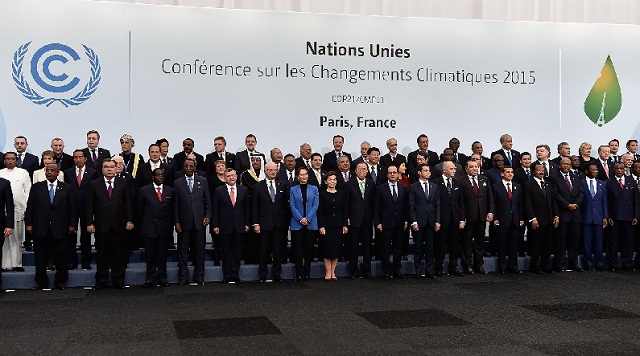
Katowice, Poland | AFP | UN talks aimed at averting catastrophic climate change are set to wrap up in Poland Friday after two weeks of heated disputes between rich and poor nations that saw countries most at risk plead for action.
Sources close to the COP24 talks told AFP that delegates from nearly 200 nations were still far apart on several issues — from adopting the latest environmental science to how future climate action is funded.
Ministers must agree on a common rule book to make good on promises made by countries in the landmark 2015 Paris accord, which vowed to limit global temperature rises to below two degrees Celsius (3.6 degrees Fahrenheit).
But with the starkest warnings yet from scientists highlighting the need to drastically slash fossil fuel emissions within the coming decades in order to meet the safer cap of 1.5C warming, delegates were urged to act now or condemn at-risk nations to disaster.
“We are bearing the torch for those vulnerable to climate change,” Hilda Heine, president of the Marshall Islands, told the conference.
“We represent a number of nations, like my own, that face extinction. Species of all kinds also face existential risk.”
Dominating proceedings in the Silesian mining city of Katowice was debate around a major report by a UN body showing the clearest sign yet of the disaster awaiting mankind if politicians fail to act.
The Intergovernmental Panel on Climate Change (IPCC) warned there was no hope of meeting the Paris temperature goals unless greenhouse gas emissions were slashed to net zero by mid-century.
Despite the UN climate change convention obliging nations to negotiate on the basis of the “best available science”, four nations refused to “welcome” the IPCC findings at the talks.
Most nations want the IPCC science to inform the rule book and form the foundation of countries’ future ambitions on climate action.
But the US, Saudi Arabia, Russia and Kuwait were accused of playing for time to boost their fossil fuel-dependent economies.
Host Poland has also come in for criticism from green campaigners for seeking permission to continue using coal for years in spite of overwhelming data that the opposite must happen.
“We do not have the comfort of time, but we have the will and we have power to achieve a compromise,” Poland’s COP24 president Michal Kurtyka told delegates late Thursday as the final draft decision text was still being tinkered with.
The expectation is that talks will drag on until at least Saturday, with a number of key issues still unresolved.
“We are seeing deadlocks in certain areas,” Xie Zhenhua, China’s special envoy for climate, told reporters.
“We need to avoid straying from principles and spirit of the Paris agreement. We cannot accept any backsliding.”
– ‘Real action, real money’ –
Mohamed Adow, International Climate Lead at Christian Aid, said there were some promising signs on the issue of funding.
Developing nations say richer countries should provide more money to help them adapt to the effects of climate change while still growing their economies.
“We need rich countries to commit to provide predictable climate finance,” Adow told AFP.
“The IPCC is clear: real action is needed to halt climate chaos. Real action requires real money for real solutions.”
With politicians locked in nitty-gritty debates over money, accountability and equity, it fell to 15-year-old climate activist Greta Thunberg to deliver the most rousing call-to-arms.
“We have not come here to beg world leaders to care. You have ignored us in the past, and you will ignore us again,” said Thunberg, who called for a global student strike Friday to raise awareness.
“We have run out of excuses, and we are running out of time.”
 The Independent Uganda: You get the Truth we Pay the Price
The Independent Uganda: You get the Truth we Pay the Price





